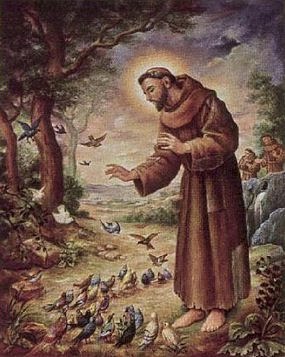The release of Pope Francis’s second encyclical, Laudato Si’, last week has sparked a much-needed global conversation about how human and environmental ecology are inextricably intertwined. Laudato Si’ is the first papal encyclical to acknowledge the effects of human activity on global climate change, and how the elevation of economic interests over the common good and human dignity have contributed to an abuse of God’s gift of creation.
Pope Francis’s teaching in Laudato Si’ is an exercise of his teaching authority to provide moral guidance on issues facing the world. Laudato Si’ illustrates the interconnection of God, creation, the human family and the organic nature of the relationship that unites them. “The natural environment is a collective good, the patrimony of all humanity and the responsibility of everyone.” (No. 94)
If we remain indifferent to the adverse effects of human activities on our common home, vulnerable communities will continue to lose resources on which they depend for survival. “The human environment and the natural environment deteriorate together,” Pope Francis writes. (No. 48) From the effects of deforestation on third-world countries that depend on rich soil for agriculture, to rising sea levels in Virginia’s own Hampton Roads region, climate change poses dire threats to economic and human interests. As such, “Humanity is called to recognize the need for changes of lifestyle, production and consumption, in order to combat this warming or at least the human causes which produce or aggravate it.” (No. 23)
How then, can we respond to the Holy Father’s call to action for the preservation of human and environmental ecology? First, he invites us to recognize that “the ecological crisis is also a summons to profound interior conversion.” (No. 217) It is a time to “examine our lives and acknowledge the ways in which we have harmed God’s creation through our actions and our failure to act.” (No. 218)
We must enter into the global conversation about how to foster harmony between human and natural ecology. While Pope Francis maintains “that the Church does not presume to settle scientific questions or to replace politics,” but “to encourage an honest and open debate,” (No. 188) the Church does remind us that not all solutions are morally licit. Those who seek to blame the ecological crisis on overpopulation and seek to promote evil practices such as abortion and contraception in response to environmental crises do not harbor an authentic concern for human and environmental ecology, and such advocacy is a way of “refusing to face the issues,” he says. (No. 50) Nor can all problems be solved through uniform regulations or technical inventions, which often “lead to overlooking the complexities of local problems which demand active participation of all members of the community.” (No. 145)
The United States Bishops have put together many resources to aid us in understanding the encyclical and our call to go forth and act. The Vatican has also released a beautiful companion video to accompany the encyclical. As we continue to digest the teachings of Pope Francis in Laudato Si’, let us remember that “living our vocation to be protectors of God’s handiwork is essential to a life of virtue; it is not an optional or a secondary aspect of our Christian experience.” (No. 217)
